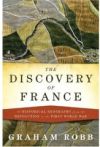|
The best thing an individual American can do right now to fight global warming personally is to switch to electricity for all your energy needs. Your next car should be electric and your next home heater and water heater should be heat pumps. Rooftop solar is an excellent idea too. That’s the central argument in Electrify, Saul Griffith’s new book about global warming (Amazon). He’s been talking about this for awhile; Electrify covers a lot of the same ground as his free self published Rewiring America and his Make articles. The most interesting part of the new book isn’t the personal advice but rather his global plan for how the whole world mitigates global warming. He starts by pointing out how urgent the problem is: we have to start doing more right now, this very year, and there’s no time to wait on new technologies. Electricity is the best form of energy for transportation and storage. The basic idea is to shift from fossil fuel to electric consumption while in parallel adding more carbon-neutral electricity sources to the grid. He argues we’ll need 4x as much electricity in the US to achieve full electrification but this is a huge net gain (50%ish) in both total energy consumption and actual costs. He advocates for an effort akin to World War II mobilization to get it done, financed with low interest debt. What I like best about his argument is it breaks the Gordian knot about “what can we do”? Electrify now and work on adding clean energy sources. I also like his holistic clarity, he really looks at whole-world energy consumption and economics. The optimism is great too. I find the argument convincing. That being said, I also think global warming is a terrible problem that world politics won’t solve in time. We’re at 1.2C warming now. The Paris goal of 1.5–2C seems impossible. 3C seems inevitable and I suspect we’ll get to 4C at least before warming starts to reverse. That’s an enormous global catastrophe so big I think we have to consider geoengineering in parallel to decarbonizing to stave off the worst effects. As the book points out there's a risk people will see geoengineering as an alternative to decarbonization. It's not, but it might be a band-aid to give us time to get CO2 under control. Ken and I are in Berlin for a few weeks, sort of working vacation. Been here about ten days now and have some impressions. I’m really liking daily life in Berlin. We have an apartment in Prenzlauer Berg near Kollwitzplatz, a bougie neighborhood in former East Berlin. It’s all leafy streets and 1920s buildings and is totally charming. The nearby streets are full of cafés and restaurants and Kollwitzplatz itself is home to a terrific weekly farmer’s market. It feels worlds away from the inhuman scale 1960+s architecture you see in so much of central Berlin. One thing I particularly enjoy in Prenzl’berg is how international it is. New York bagels, French cheese shops, English laundry, Vietnamese restaurants, Russian cafés, yesterday I had an Argentinian empanada in a repurposed 19th century brewery. I mean it’s still Germany, there’s a 100 year old kneipe just across the street from us serving Rinderouladen and Pils. But it’s also global and progressive. Which not only makes it easy for an American to get by but also makes it fun and not a historical museum like sometimes Paris can feel like. I also appreciate being in a city with working public transit. And without thousands of dangerously insane people living on the streets. Having a bit of insulation from Trumpism helps calm the nerves. Big parts of life function better in Europe. I’m also feeling a little unsettled, a phase I go through every time we do these long visits. A struggle between the feeling I should go out and be a tourist every day, consume the city in the short time I have. Against my desire to sit at home on my comfortable laptop and do my regular daily routine just like I would at home. Of course the happy medium is in the middle, some of each. One goal I set myself for this time in Berlin was to learn more about older history. So much of Berlin is dominated by 20th century history, the Nazis and the Soviets. And that stuff is important and well represented. But I feel like I understand it from previous visits, so this time I’m looking for traces of 19th century Germany, of Prussia’s great gay king from the 18th century, of the very old city back when Cölln was a separate town. Learning the city from the time the waterways were the travel routes, not the U-bahn lines. Ken and I went back to Paris for the first time in a few years, visited a bunch of old favorite spots. Some sadly in decline (Le Caveau du Palais), some still good. And a couple of new experiences.

I’ve loved the street art in Paris. So many fun discoveries, random art in unexpected public places, some beautiful works by Mesnager, L'Atlas, C214, Space Invader, Miss Tic, and so many more. Sadly, my visit to Paris in 2014 was a bit more discouraging. The bits I’ve found in the posh parts of town, the 1st, 2nd, 4th, and 6th have been interesting. But a lot of work I remember is gone. Many suspiciously blank spots where there used to be invaders, or interesting affiches, or other things. It feels like someone went and cleaned many of the streets. Also a very discouraging walk through Bellveille; see my Flickr photos. It’s always been a grimy neighborhood, it’s part of the charm, but the street art there has taken a turn for shitty tags over clever site pieces. And the amazing old gallery at La Forge / La Kommune is completely gone, the artist squat space has been replaced by an ugly modern building. An inevitable development, but a disappointing conclusion for a street art walk. Some of that energy has moved down to Rue Dénoyez but it’s mostly tags, not interest art. Also apparently that space is threatened. Sorry to be a bummer, maybe it’s just me. Particularly sad to have found almost nothing new and exciting. 
Today I learned that one of the key themes in the electronica soundtrack for the film Liquid Sky is an arrangement of a 1723 piece by baroque composer Marin Marais. Compare for yourself: Sonnerie de Ste-Geneviève du Mont-de-Paris, Noon and Afternoon from Liquid Sky. Liquid Sky has always been one of my favorite films. The plot’s ridiculous. But the music, the art direction, the costumes, the acting, it’s all beautiful and unique. A particularly heady film for 1982. Sadly my love for the film is not shared by all. I came to all this while listening to Nicolas Jaar’s essential mix, excellent listening itself. He mixes the baroque piece on top of some Aphex Twin around 19 minutes in.
The Some Bits weblog is over 10 years old now, my first posts were in October 2001. The topics haven't changed much: that first month was a random mix of technical content, tech news, cultural commentary, politics, and Victorian urinals. The format has changed, I used to write more short single link posts. Activity level has varied; here's a calendar view of posts, one box per day.
My weblog is an old school blog, a public diary of things that personally interest me. I mostly write as a way to summarize what I'm learning about something new like living in Paris or flying airplanes. Sometimes I post to influence others with an opinion about Klout or Facebook or SOAP or the like. On rare occasions I troll. But even though this blog is mostly written to satisfy myself, I do write it for an audience. It takes me most of an hour to write these short messages. (See my secret work blog and defunct game blog for much less edited stuff.) I love the old school blog format. I've got a big list of RSS feeds for other blogs like mine; some recently active favorites include Justin Watt, Jason Kottke, and Rafe Colburn. The list is much longer with less active people Mike Migurski or Andy Baio; I love it when a blog post pops up after six months of silence. I regret that "blogging" for most of the world now means crappy journalism; pro-blogs with 20+ posts a day salted with ad targeting keywords is tiresome. The ease of Twitter's short format has definitely sucked some of the energy out of personal blogging. But as Anil says, if you didn't blog it, it didn't happen. Go ahead, write something, it's not hard! Even if no one but yourself ever reads it it's worth your time. For hosted blogs these days I like WordPress.com. I keep meaning to check back on how Blogger is doing, too.
Ken and I are in New York for a couple of weeks. We are food tourists. Here's some notes on places we've eaten.
Craft (Flatiron). Our first and, so far, best meal in NY. Perfectly cooked bits of delicious meat. My short ribs were excellent, as was my ballotine of suckling pig, a sort of charcuterie. All very simple, but also very solid. Good service, nice room. I may go back. Le Gigot (West Village). A solid little French restaurant, of the sort you can find everywhere in Paris and almost nowhere in San Francisco. Nice salad, slightly odd cassoulet. The meats were all cooked perfectly but the broth was a bit weird, too dark and tasting of Kitchen Bouquet. Still, I liked the place. Thalassa (Tribeca). Somewhat upscale Greek. It was OK, but not great. Very simple and spare cooking, which is appropriate: grilled fish with a bit of olive oil, grilled shrimp with a bit of olive oil. Interesting fish, good quality, but neither were cooked quite right. Execution is everything in this kind of place and it fell just a bit short. Mercer Kitchen (SoHo). I have a fond spot in my heart for this American classic restaurant, one of the best cocktails I've ever had was a French 75 here some 10 years ago. Sunday brunch was uninteresting. Too crowded, boring menu, indifferent hamburgers (!) and omelettes. Resting on a reputation. Soho Sushi (SoHo). Delivery sushi at a friend's. Pretty good, really, but with delivery it's hard to be sure what you're really getting. Some of the rolls were ill advised. Pigalle (Times Square). A solid little French brasserie, of the sort you find everywhere in Paris but almost nowhere in San Francisco. Not quite as solid as Le Gigot. I've been three times now and it's reliable, spacious, and the cooking is adequate. Lunch was uninspired. John's Pizzeria (West Village). Glad I got the NY pizza out of the way. Entirely adequate, uninteresting, I can get as good a pizza in San Francisco only delivered to my house with my wine and my television. (Or in Zürich, or in Paris, or.. pizza is a commodity.) The best thing about John's is it's near Grom; save room for gelato. Where I really want to dine are 11 Madison, Le Bernardin, and Per Se. Sadly they are all very hot tables and three weeks was not advanced enough booking.  The Discovery of France tells the story
of the unification of France as one cultural identity stitched
together out of the zillion little villages, languages, cheeses that surround
the capital of Paris. It's a cultural history
of France in the 18th and 19th centuries exploring life in the
country before it was truly unified by roads and telegraphs.
The Discovery of France tells the story
of the unification of France as one cultural identity stitched
together out of the zillion little villages, languages, cheeses that surround
the capital of Paris. It's a cultural history
of France in the 18th and 19th centuries exploring life in the
country before it was truly unified by roads and telegraphs.
The author does a great job conveying just how large a country France is and how far-flung places are before travel and communication was easy. The chapter title "O Òc Sí Bai Ya Win Oui Oyi Awè Jo Ja Oua" gives an idea of the author's approach, in this case cataloging the linguistic diversity of various words for "yes" across France. The book is full of amusing anecdotes from travellers, explanations of religions, the role of the Enlightnement and the Revolution in unifying the co untry, and overall a deep love for the French countryside. I particularly liked reading this book as an American. Our vault into modernity comes at the same time as the founding of the country itself; we never had an isolated agrarian past. European history is quite different. I've been reading a lot of books lately. I hope to blog about them
more, reviving a 13 year old
tradition.
I've been writing this blog for over six years always to satisfy an
audience of one: myself. But I'm vain and am curious what parts of my
blog others like. Thanks to Google Analytics I now know my most-linked
posts:
 Neither Ken nor I are naturally tidy. Newspapers accumulate in the
living room until trash day, I leave three pairs of shoes under the
coffee table, Ken left one unsuccessful Christmas present right where
it was unwrapped until April. We're not totally filthy slobs, but the
clutter accumulates.
Neither Ken nor I are naturally tidy. Newspapers accumulate in the
living room until trash day, I leave three pairs of shoes under the
coffee table, Ken left one unsuccessful Christmas present right where
it was unwrapped until April. We're not totally filthy slobs, but the
clutter accumulates.
When we were in Paris we tried an experiment of complete order. Nothing stayed out where it didn't belong. Books on bookshelves, magazines in a neat pile out of sight, electronics and eyeglasses stored away in drawers. It was easy to start since the apartment was entirely orderly when we arrived. And we found keeping a tidy home was actually pleasant. So now we're bringing order to our home in San Francisco. So far we've organized the living room and dining room; the bedroom comes next. I'm finding that having less clutter in my life makes me calm and happy. The next step for me is to throw away, give away, or sell a bunch of the crap I've accumulated and no longer want. Calm. |
||
